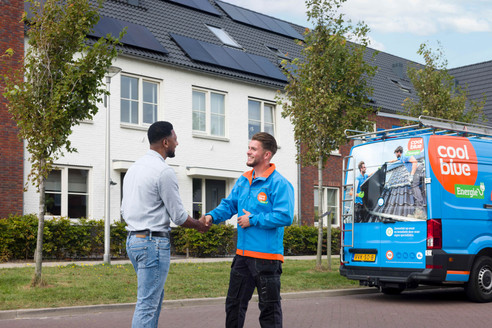
How does Coolblue Energy install solar panels on a pitched roof?
What are the pros and cons?
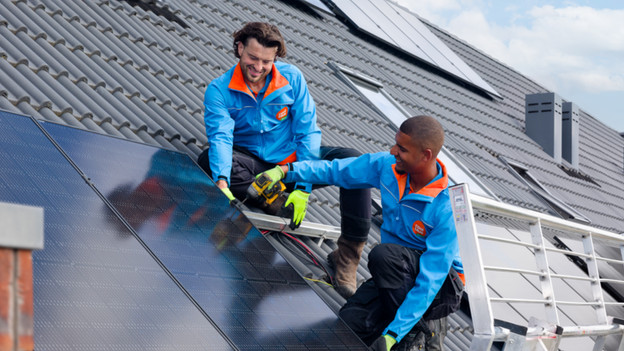
We'll list the most important pros and cons for a pitched solar roof.
- Thanks to the pitched roof, the solar panels are automatically installed at an angle and they'll get more sunlight.
- More solar panels fit on a pitched roof than on a flat roof most of the time.
- Solar panels are more solid on a pitched roof, so we don't need extra reinforcement.
- You often can't choose the orientation and the incline, unlike a flat roof.
Landscape or portrait setup?
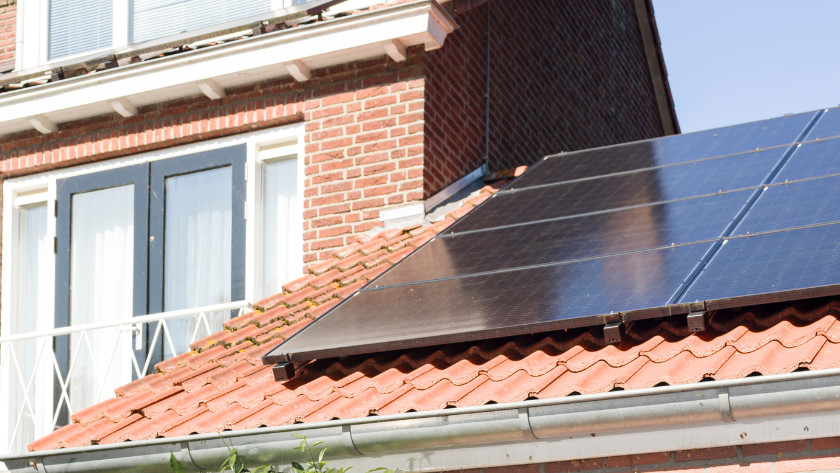
Landscape
We install solar panels on a pitched roof in 2 ways. With a landscape setup, the solar panels are installed horizontally on your roof. The position of the solar panels on your roof doesn't affect your generation
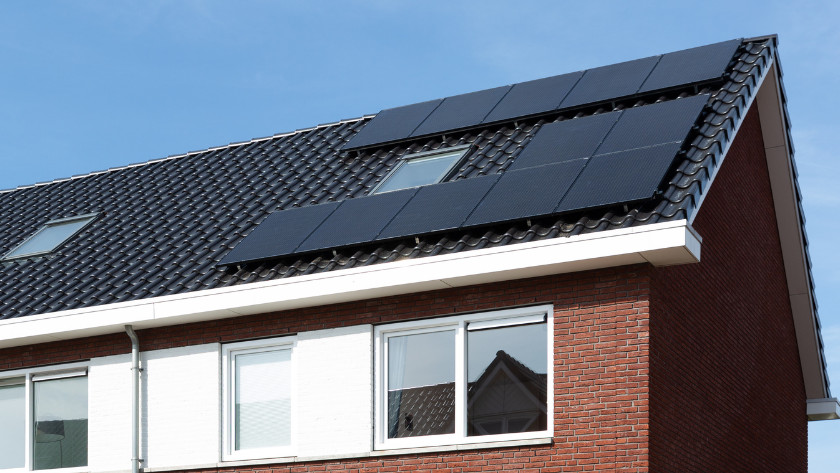
Portrait
With a portrait setup, the solar panels are installed vertically on your roof. Depending on your roof an your situation, either landscape or portrait might be more suitable for you. Sometimes, we advise a combination of both.
Incline and wind margins
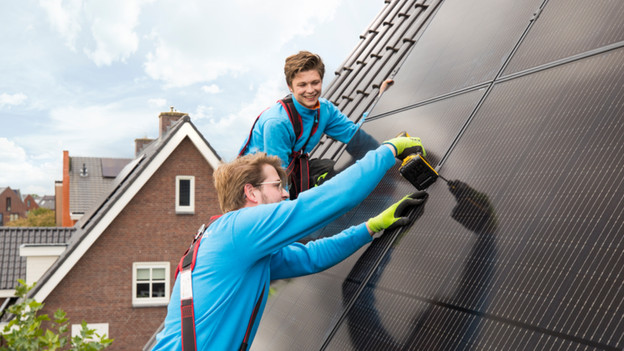
When we design a pitched solar roof, we check the incline and orientation of your roof. In case of a pitched roof, your solar panels will be facing the sun properly already. Often, at pitched roof has an incline between 20 and 50° on a pitched roof. We also take wind margins into account. This means that the distance between the solar panels and the ridge or gutter is at least 20cm. That way, we prevent the wind from catching underneath your panels and damaging your solar roof.
We're happy to help you choose
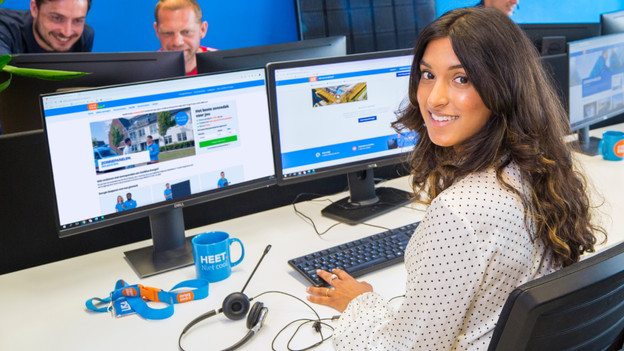
Every roof is different. That's why we check the orientation of your roof and how much sunlight falls onto it. Because we design the setup accordingly, you can get the most out of solar panels for your situation. Are you curious about the best setup for your roof? Request an advice appointment free of charge.

